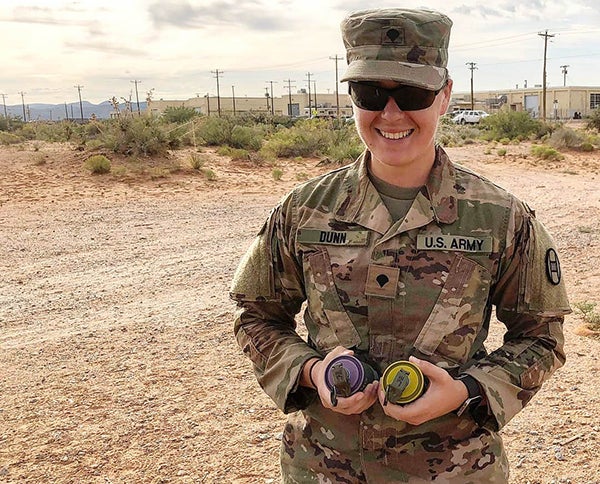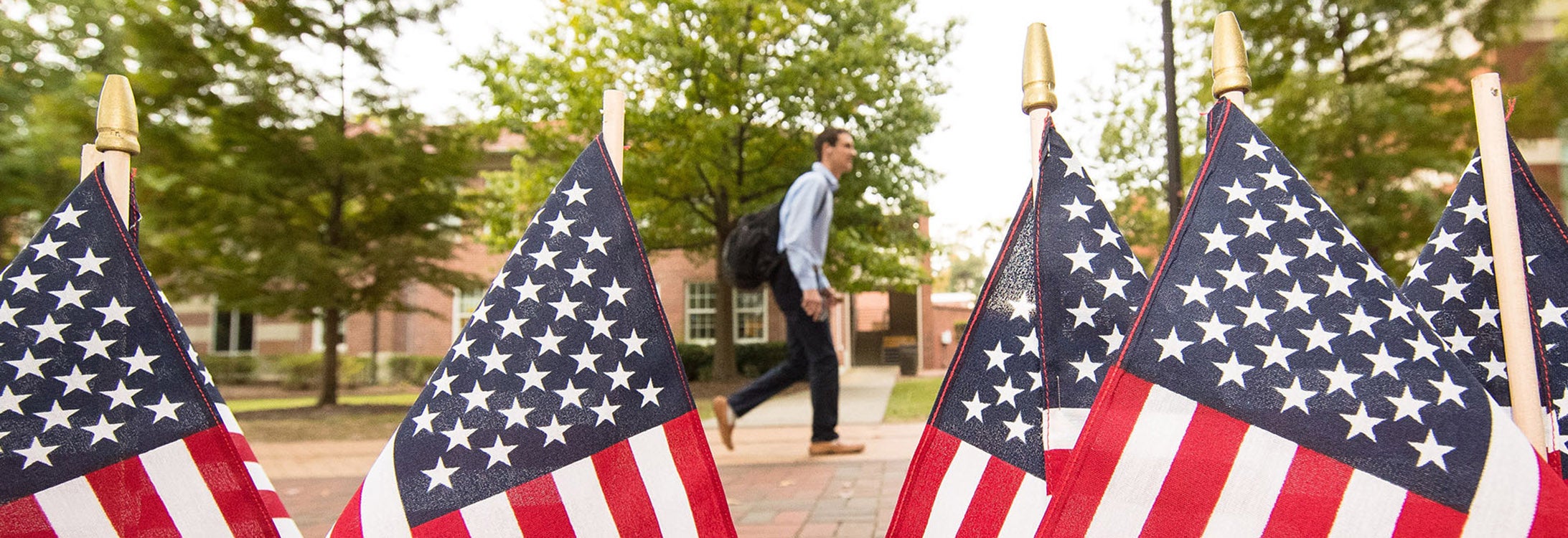DEPLOYED FOR THE HOLIDAYS
Military services members experience stress few civilians understand

Spc. Mikhayla Dunn ’17, a combat medic in the Army National Guard, is deployed and will spend the upcoming holidays away from her family. (Contributed photo)
East Carolina University alumna Mikhayla Dunn serves as a combat medic in the Army National Guard. The specialist sees good things in her military service.
“By far the best part about the military for me is meeting new people and finding lifelong friends,” said Dunn, who graduated ECU in 2017 with a degree in public health studies. “Sharing experiences together, good or bad, has a way of bringing people together. It’s like having a second family.”
However, she admits the job comes with a type of stress few outside military service understand. Dunn is on deployment and will spend a significant amount of time, including the upcoming holidays, apart from her husband, Christopher Kistner.
“I expect it will be hardest for the people left back home waiting for our return, especially since Thanksgiving and Christmas is usually when everyone in my family gets together,” Dunn said. “I’ll also be missing my first wedding anniversary while I’m over here.”
Dr. Ashley Britton, a clinical assistant professor in the Department of Psychiatry and Behavioral Medicine at ECU’s Brody School of Medicine, said separation for military service members during the holidays can be difficult.
“During holidays, deployed service members may experience feelings of homesickness, loneliness, depression, frustration, stress or guilt,” Britton said. “Consequently, the service members may temporarily distance themselves from their own family because hearing about holiday festivities may be too painful. However, being around others and socializing with friends and family are important steps for maintaining your well-being and future reintegration.”

Mikhayla Dunn is shown with her husband Christopher Kistner in their wedding picture. (Photo by Kristen Martin)
Britton said service members should try to get as much rest as possible to help reduce stress and maintain contact with family members. Something as simple as recording a reading of a child’s favorite book or writing brief letters home can go a long way to maintaining that family connection.
For Dunn, she looks forward to her return home but understands that reunion may have its own stress.
“The most I’ve been away from home before this deployment was four months and readjusting to civilian life was a struggle even then. This time I’ll be gone for almost a year,” Dunn said. “… Your loved ones back home get used to running things without you, and suddenly when I get back I don’t fit in the daily operations of the household. It’s also hard going from an active, high-tempo pace working 18- to 19-hour days to an 8 a.m. to 5 p.m. desk job.
“Communication helps when getting reacquainted to everyday life. My husband and I also set goals for deployment and have plans for when I get back. It gives us both something to look forward to share, even though we’re across the world from each other.”
For ECU student veterans, visit Student Veterans Services in the Mendenhall Building, room 254, or go to https://studentveterans.ecu.edu.
MORE HOLIDAY STRESS STORIES:
